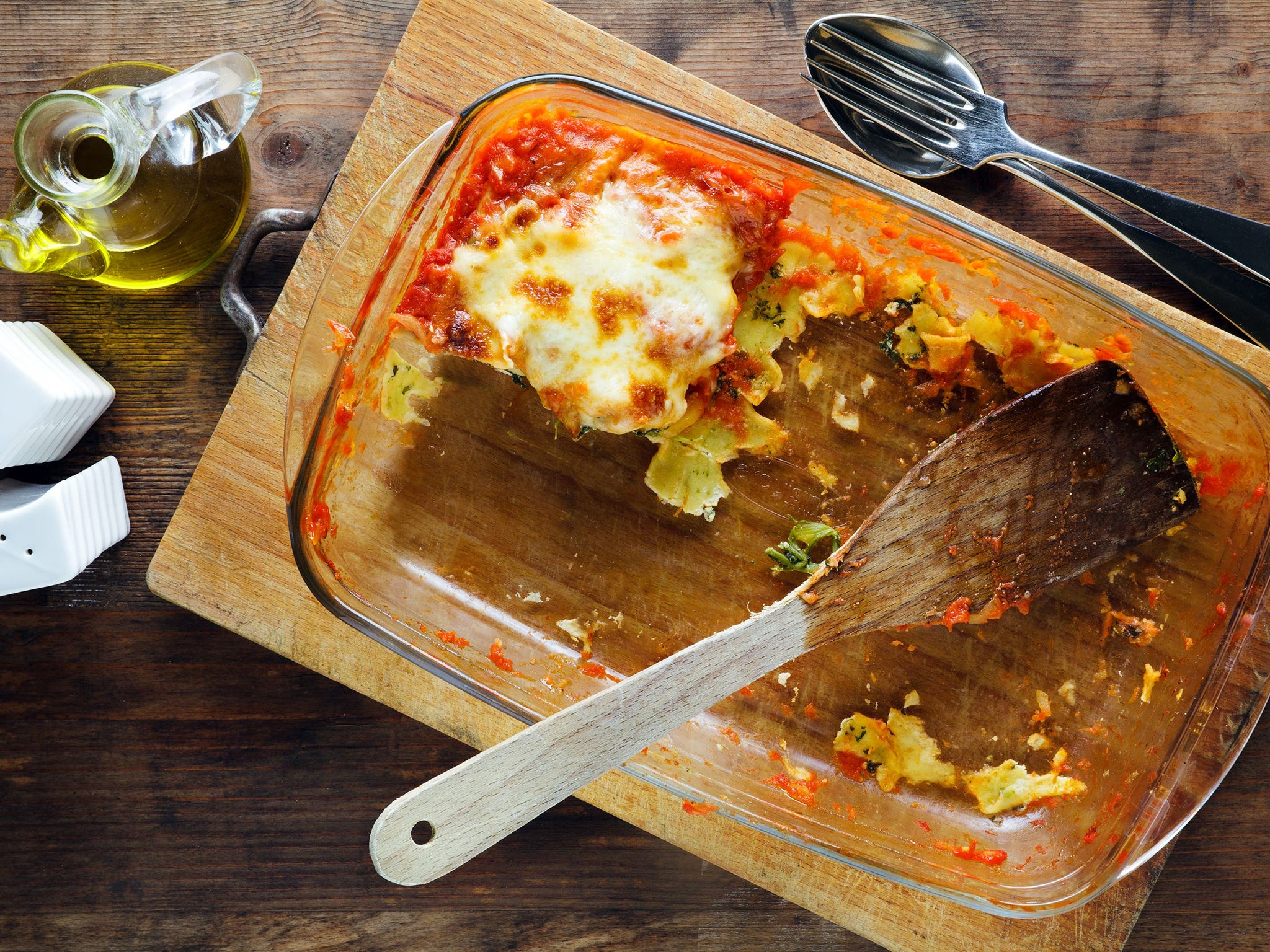Four easy tips for using up leftovers in lockdown
Gemma Bradley speaks to chefs and health food experts about how to make your food last longer

Your support helps us to tell the story
From reproductive rights to climate change to Big Tech, The Independent is on the ground when the story is developing. Whether it's investigating the financials of Elon Musk's pro-Trump PAC or producing our latest documentary, 'The A Word', which shines a light on the American women fighting for reproductive rights, we know how important it is to parse out the facts from the messaging.
At such a critical moment in US history, we need reporters on the ground. Your donation allows us to keep sending journalists to speak to both sides of the story.
The Independent is trusted by Americans across the entire political spectrum. And unlike many other quality news outlets, we choose not to lock Americans out of our reporting and analysis with paywalls. We believe quality journalism should be available to everyone, paid for by those who can afford it.
Your support makes all the difference.Home cooking is now an unavoidable part of life thanks to coronavirus restrictions, as even the most ardent takeaway fans cannot order in every night.
So how can you have healthy, tasty and, most importantly, affordable meals every night without hassle?
Here we speak to health food experts about how to make the most of what is in your cupboard.
What staples should be in every person’s cupboard?
The key to success is including versatile, long-lasting items in your weekly shop, experts say. Jane Clarke, dietician and founder of Nourish Drinks, said she would recommend the following items:
- Tinned tomatoes
- Tinned tuna
- Herbs and spices
- Stock cubes (chicken, vegetable or beef)
- Oil
- Dried pasta (brown, wholemeal or white)
- Rice
- Onions
- Potatoes
- Plain flour
- Dried or tinned fruit
- Bread
- Eggs
- Cereal
“All these foods can be easily accessed at a local supermarket, as well as being affordable,” she said. “These foods are great to have in your cupboard to make a quick meal if you are low on fridge food, or just can’t be bothered to go out for a food shop.”
How can I make the best of leftovers?
If you have not managed to use up everything from your last big shop, the key is to know the basics to get the best out of what you have left.
Celia Brooks, chef and founder of food tour company Gastrotours, said: “Eggs are a gift from the gods when it comes to using up leftovers; make an omelette and fold it over just about anything, like leftover steamed or roasted veggies – add a bit of grated cheese to make it creamy, rich and delectable.
“Leftover cooked potatoes or any veg or beans can be turned into a frittata – again, add some cheese melted on top. Finish with chopped fresh herbs such as parsley or dill.”
How can I keep food fresh for longer?
If you do have some food in the house but are not up for cooking, learning how best to store different food types will make all the difference.
Brooks said: “Keep lemons and limes in a sealed plastic bag in the veg drawer of your fridge – they’ll last for weeks rather than days, and once opened, wrap cheese in greaseproof paper or baking parchment and store in a sealed bag in the fridge to extend its life.
“Your freezer is your best mate. Freeze sliced bread and you’ll always have it ready to pop in the toaster, freeze leftover casseroles, stews, soups, and mashed potatoes in individual portions or use frozen mash later (defrosted) to top a shepherd’s pie, or make bubble and squeak.
“Any leftover portion of an ingredient from a jar or tin – like beans, corn, vegetables, and fruit, can be put in a small resealable bag or air-tight container and frozen for up to six months and you can also freeze leftover cooked rice, pasta or grains.”
How easy is it to stay healthy on a budget?
Clarke said: “Planning meals in advance is a great way to reduce your spending on food, as well as making sure you have all the right foods to receive the nutrients necessary for your healthy lifestyle.
“One tip I would recommend is to buy frozen vegetables, these come in big bags and can be kept in the freezer for months and this will help when being on a budget as you will not need to go out to keep buying fresh vegetables.”




Join our commenting forum
Join thought-provoking conversations, follow other Independent readers and see their replies
Comments